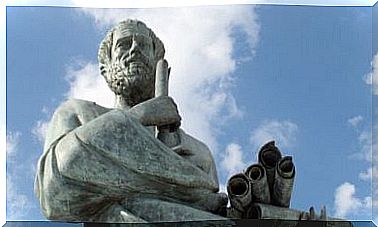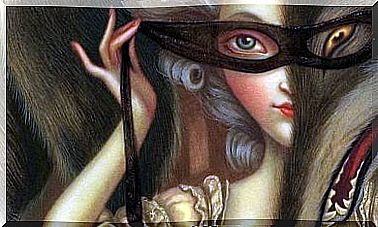Sherlock Holmes And The Power Of Observation
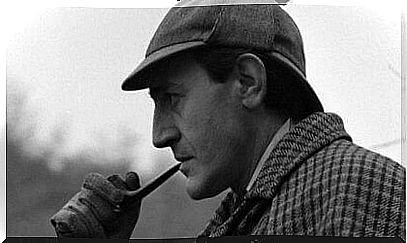
The social evolution that has taken place over the last few decades has not caused Sherlock Holmes to lose his fame. That’s why many programs and series portray the power of observation of this famous detective even today. In each of his versions and appearances, Sherlock’s portrait is the same: a person as eccentric as he is intelligent.
Currently, there are at least two television series that portray Sherlock and his mysteries. Produced in the United States, Elementary features Johny Lee Miller and Lucy Liu. In this series there are many references to the cases that Conan Doyle placed in Holmes’ hands. In addition, deduction techniques are used that real-life detectives and forensic experts also use.
In addition to Elementary , we also have Sherlock , another series produced by the BBC. The London detective is played on screen by Benedict Cumberbach, along with Martin Freeman. In this BBC series, mysteries are solved through technology and the power of observation linked to logical reasoning.
In both series, Holmes’ character actually makes use of his deduction skills. These skills are far superior to those of his co-workers, making Sherlock an indispensable figure in solving the most important mysteries.
Sherlock Holmes
Sherlock Holmes is a fictional character created by Arthur Conan Doyle. Its first appearance dates back more than a century, in 1887, in the book A Study in Red . For forty years the adventures of Sherlock Holmes were published in different magazines and newspapers. Conan Doyle, who came to deeply hate his character – almost as much as his audience adored him – passed away having written 4 books and 56 short stories with Sherlock as the protagonist.
Returning to the character, Sherlock uses his deduction skills to solve cases that some people or the police themselves ask him. The famous detective loved complicated cases as he saw them as challenges he could have some fun with. In fact, for him these cases were like a kind of addiction.
Another fact is that we can consider Conan Doyle a pioneer of forensic science in the literary realm with his stories about Sherlock Holmes. To give form and content to his stories he used, for example, the discovery of fingerprints by the French anthropologist Alphonse Bertillon in 1870.
If there’s one skill we can identify in Holmes, it’s seeing where others don’t. The power of observation. He is very adept at estimating the probabilities associated with his assumptions, as well as establishing logical relationships. It’s like a kind of game of magic that, paradoxically, is much more appealing when Holmes himself explains it.
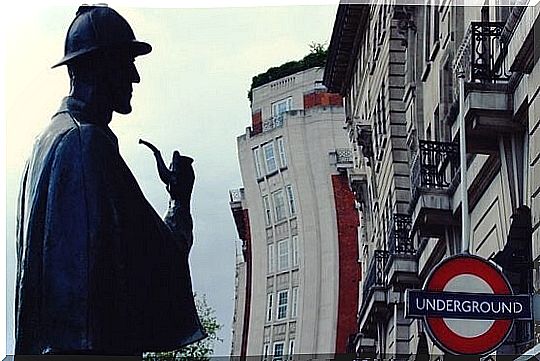
the power of observation
Observing people and situations is an incredibly useful skill. It can give you the advantage of recognizing small patterns of behavior. This way, you will be able to get ahead of situations either in casual occasions, job interviews, presentations or in any other environment.
Many people, on many occasions, do not pay attention to their surroundings. Our famous detective understands perfectly how valuable a detail can be. We are referring, for example, to aspects of personality, physique or even clothing that can tell us about a person’s interest or profession.
In that sense, technology plays a bit against us. We may even have more resources to get information about what is happening in all parts of the world, but we also lost the practice when it comes to reading expressions and behaviors.
Our patience to endure boredom is nil, so we often do more than one task at a time – like when we’re reading and watching television. Doing one thing just ends up looking tedious.
The distance between seeing and observing
In A Scandal in Bohemia , Holmes explains to Watson the difference between seeing and observing.
”When I hear your reasons,’ I said, ‘things seem to become so ridiculously simple that I think I could easily draw the same conclusions as you. With each new case that you present to me of your seemingly strange powers, I am baffled until you explain to me how your case came about. But I think my eyesight is as good as yours.
“Perfectly,” he replied, lighting a cigarette and slumping into an armchair. “You see, but you don’t watch.” The distinction is perfectly clear. For example, you’ve often seen the steps leading up from the room to this room.
“I see it often.
– How many times?
“Well, a few hundred times.
“So can you tell me how many there are?”
“How many steps?” I do not know.
– Now you understand? You saw them. But he didn’t watch them. There’s my advantage. I know there are seventeen steps, because I saw and observed.”
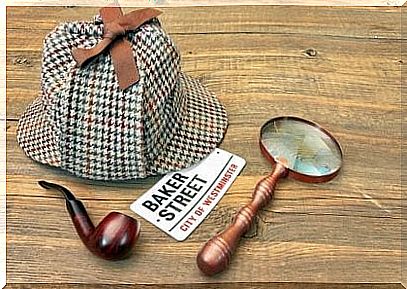
How to make your abilities look a little more like Holmes’
You can develop the power of observation through the following tips:
- Make notes about your environment. Count the steps. Identify the number of windows. Write it down in a small notebook that you can take with you. With practice, you will no longer need the notebook for this.
- Share your impressions. We all work with logic, what happens is that most of our conclusions are not shared with anyone. Try this, and see that you will have valuable feedback to improve your thinking.
- Keep an eye out for patterns. The world is full of little patterns of behavior. By observing a person for a while, you can learn which gestures and emotions are associated with a specific emotion.
Doyle, like all writers, was a bit mischievous. He could give clues but also direct Holmes’ interpretations. This, of course, does not stop us from continuing to enjoy the stories and adventures of this wonderful detective, immortalized through literature and the generations and generations who lived with him at 221B Baker Street.




